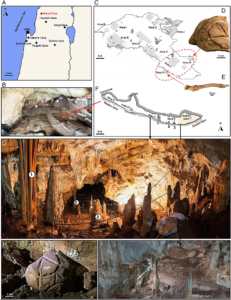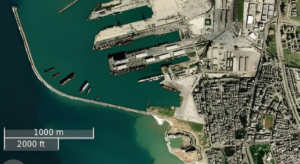Assad’s Fall Brings an End to Syria’s Dynastic Rule

The Syrian government collapsed early on Sunday, marking an end to the Assad family’s 50-year rule, after a surprise rebel offensive quickly swept through government-held areas and reached the capital in just 10 days.
The fall of Syrian President Bashar al-Assad’s government on Sunday brought to a dramatic close his nearly 14-year struggle to hold onto power as his country was torn apart by a devastating civil war that became a proxy battleground for regional and international forces.
Assad’s downfall came as a stark contrast to his first months as Syria’s unlikely president in 2000, when many hoped he would be a young reformer after three decades of his father’s iron grip.
Only 34 years old, the Western-educated ophthalmologist was a rather geeky tech-savvy fan of computers with a gentle demeanor.
But, when protests against his rule broke out in March 2011, Assad resorted to the harsh tactics once used by his father to try and suppress them.
As the uprising escalated into a full-blown civil war, he relied on his military to bombard opposition-controlled cities, backed by allies Iran and Russia.
International human rights groups and prosecutors accused Syria’s government-run detention centres of widespread torture and extrajudicial killings.The Syrian war has claimed nearly 500,000 lives and forced half of the country’s pre-war population of 23 million to flee their homes. As the uprising escalated into a civil war, millions of Syrians sought refuge in neighbouring countries like Jordan, Turkey, Iraq, and Lebanon, with many continuing their journey to Europe.
His departure brings an end to the Assad family rule, spanning just under 54 years. With no clear successor, it throws the country into further uncertainty.
Until recently, it seemed Assad was close to stabilising his position. The prolonged war had settled into frozen frontlines, with Assad’s government reclaiming most of Syria’s territory. Meanwhile, opposition groups controlled the northwest, and Kurdish forces held the northeast.
Despite crippling Western sanctions on Damascus, neighbouring countries had started to accept Assad’s grip on power.
The Arab League restored Syria’s membership last year, and in May, Saudi Arabia appointed its first ambassador to Syria in 12 years after cutting ties with Damascus.
However, the geopolitical situation changed rapidly when opposition groups based in northwest Syria launched a surprise offensive in late November.
Government forces quickly crumbled, while Assad’s allies, distracted by other conflicts — including Russia’s war in Ukraine and the ongoing wars involving Israel and the Iran-backed militant groups Hezbollah and Hamas — seemed unwilling to intervene forcefully.
Assad’s whereabouts were not clear Sunday, amid reports he had left the country as insurgents took control of the Syrian capital.








